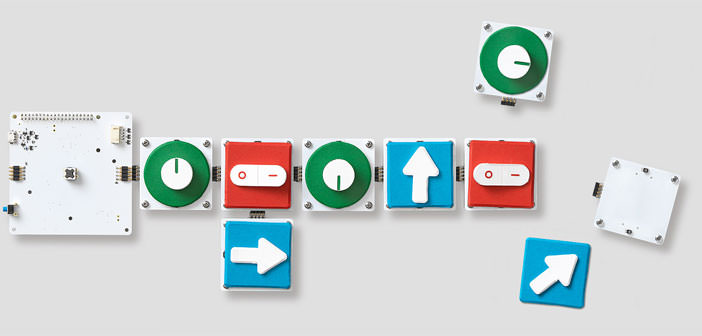By the company in Mountain View a development project for a platform for the realization of toys that can help children learn the basic concepts of programming.
Learning to program is an activity that often consumes in sitting before a computer and with a hefty manual next, store commands, syntax, rules, and carefully check the details and possible errors. Certainly, especially considering how the present and the future are in need of capacity and skills in programming. It would be desirable to find a way to be able to teach the principles and the basic concepts of programming in a more immediate, fun, with practical tools and visuals so as to make it like a game and approachable even by children.
And what we’re trying to do Google with a new initiative called Project Bloks: it is a set of functional blocks that children can dial to control other toys, as well as learn the basics of programming during play.
The intention of Google in the development of Blok is to teach the logic behind the program, so that a child can take possession of the basic concepts that you can reuse and put to use at a later time, turning them into knowledge and skills.
Google has no plans to become a manufacturer of toys, but to realize Bloks as a platform (ie build much of the technology and the code behind) and leave it to the partners to make toys based on it.
It is basically, the same model that Google uses for Android and that should allow easier creation of finished products and a wider variety of toys on the market.
This is a project still under development and away from commercialization, carried out collaboratively by Research at Google, Google Creative Lab, Ideo and a group of researchers at Stanford University and Chiang Mai University. The development started in 2013 and the project has been unveiled now so that Google can stimulate the interest of developers and find partners willing to work on Bloks toys. Currently, it has not yet been set a date or a time frame for the commercialization of Bloks.

